MAVERICK MAPPER
Random retail revelations in small South African towns
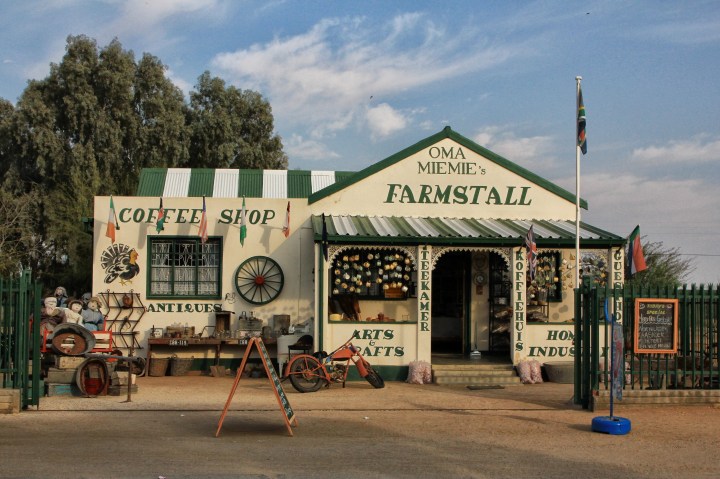
Affordable farm-fresh produce, delivered from the ground to the gate or bicycles and parts, inner tubes, pumps – you can find everything and more in small towns around South Africa.
Every Saturday morning during the first months of the hard lockdown last year, there would be a cheerful toot outside our gate. We’d pop our heads out the front door to see a bakkie vanishing down the road. On the pavement outside the gate would be a box.
Poking out of it was a bouquet of cheerful garden flowers (featuring a few late roses and chrysanthemums) along with a double bunch of spinach. Deeper inside was a pack of lettuce, some non-standard tomatoes, a butternut, an aubergine, a bushel of beans, three green peppers, three slices of boerpampoen, a clutch of shallots, two small cabbages, three fat bulbs of garlic, some fresh thyme and mint, a brown paper bag containing a crusty loaf of fresh bread, and six eggs.
A treasure, in other words. Especially in a time when everyone was craving contact and novelty.
All the goodies were from Waterval Farm in the Cradock district. The vegetables were from Lani Lombard’s kitchen garden. The bread was from her oven. And the eggs, with their orange yolks, were from the chickens that scratch around the Waterval werf.
Affordable farm-fresh produce, delivered from the ground to the gate, contact-free, safe and even legal. What could be better?
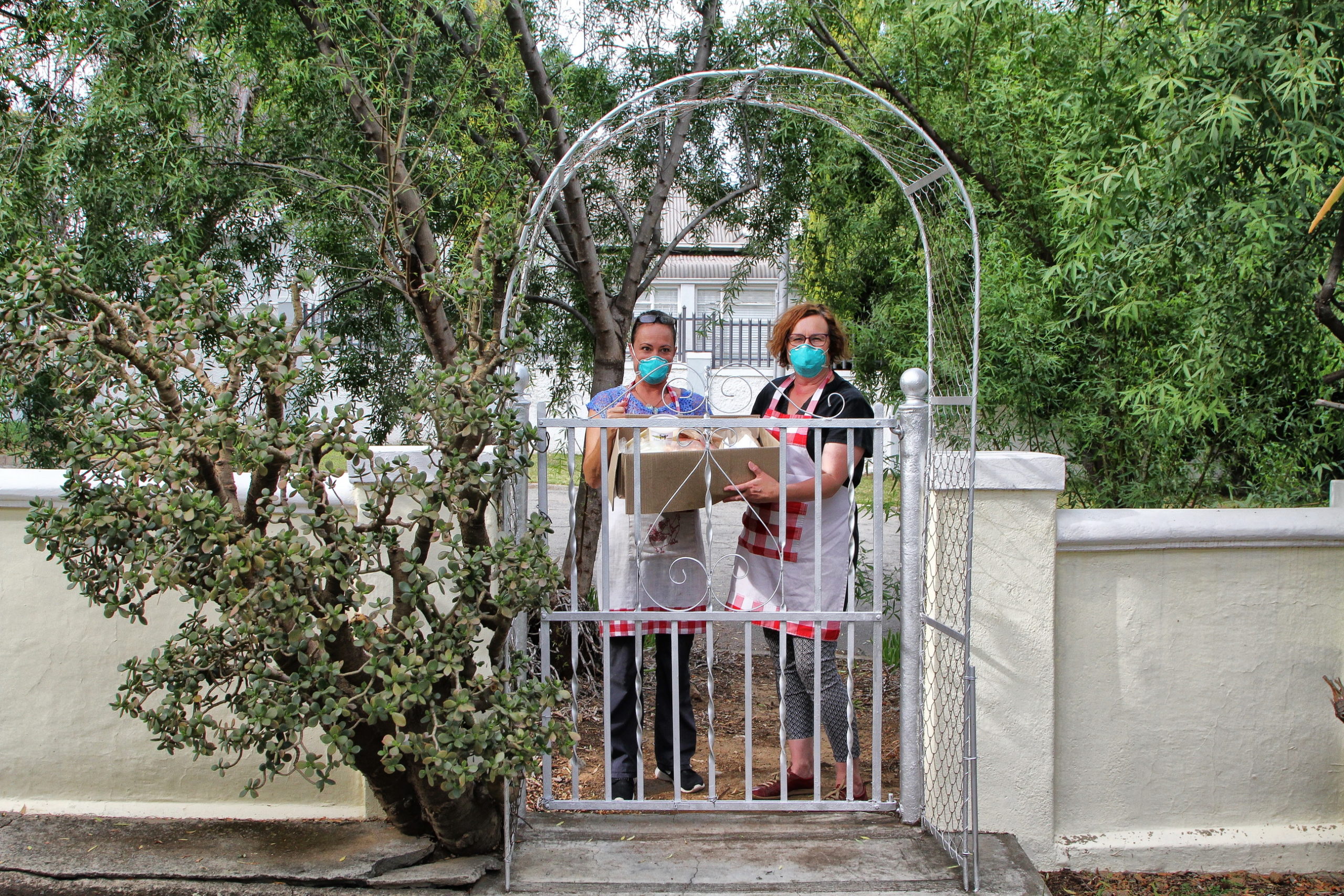
Lani Lombard and her sister Talita arriving at our garden gate with a box of farm goodness. Photo by Chris Marais.
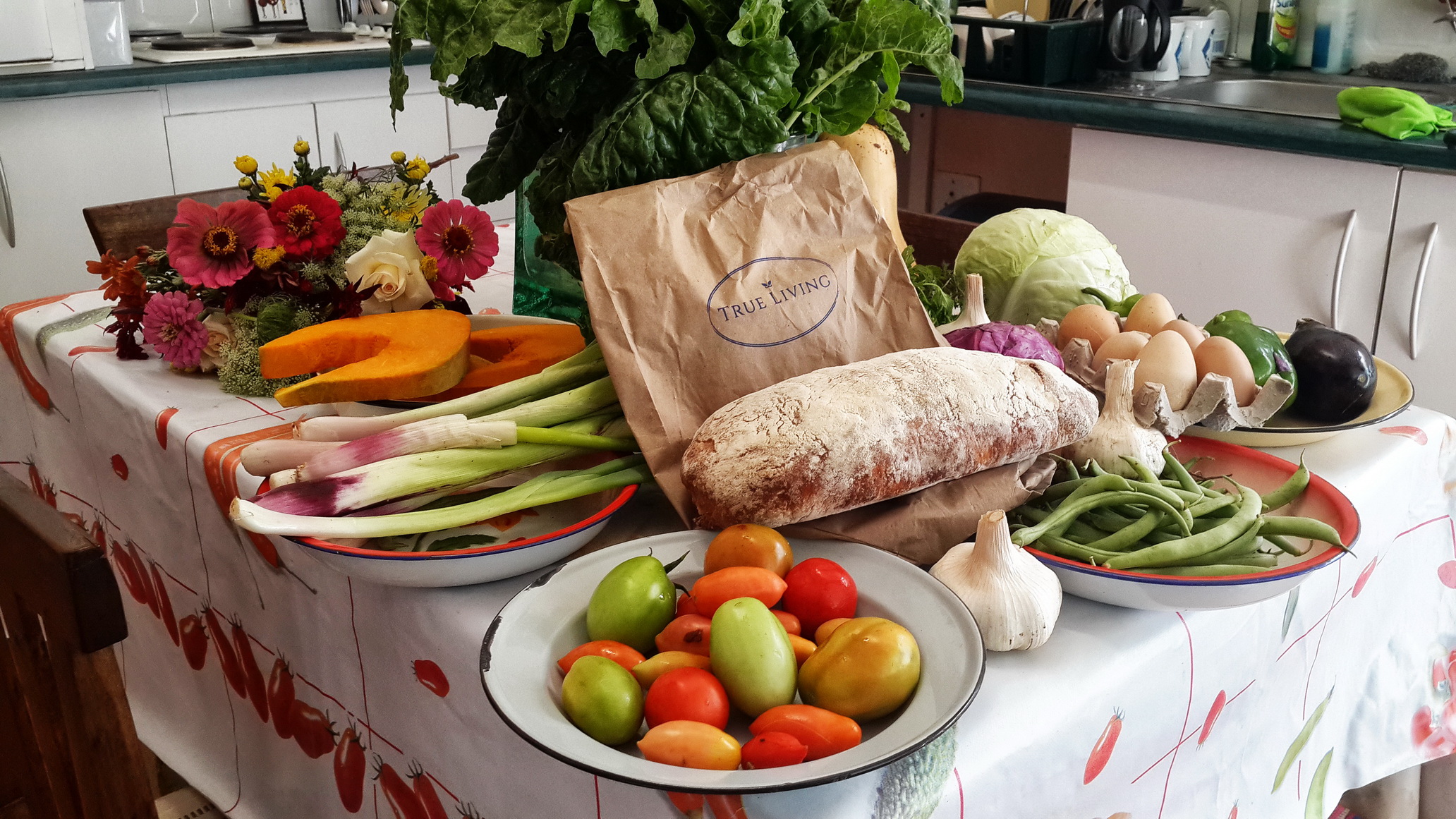
A feast from Waterval farm, spread out on our kitchen table. Photo by Chris Marais.
As the popularity of the Lockdown Farmbox grew, Lombard collaborated with other farmers. Veggies were supplied by Zola James of Hofmeyr. There was De Pekelaar cheese from Paterson, droewors, biltong and kaaswors from Lombard’s garden, with fresh double-thick cream from Littlefields Farm.
The bounty was quite remarkable, considering the entire Karoo was in the grip of the worst drought in living and written memory.
Women to women
Talking about drought, another dimension to this box of feasts had come from the last, grinding months of the lack of rain in late 2019. By then, it had dragged on for more than five years and had forced thousands of Karoo farmers to their knees. Many had gone deep into debt as every spare cent went to buying fodder for livestock. News emerged of families who could no longer pay their children’s school fees. There was certainly nothing for little luxuries.
Earlier that year, the women of Paarl’s Strooidak Church began a project that eventually expanded to touch every drought-stricken farmer’s wife. Named Boks vir ’n Boervrou (Box for a Farmer’s Wife) it called for people to donate a shoebox full of the little luxuries that so many could no longer afford – hand cream, magazines, sweets and good coffee. Lifts were found to get the boxes to the driest areas, starting in Williston.
Even though Cradock was also badly affected by drought, the farmers’ wives in the district were among the most generous, sending truckloads of boxes across the Karoo to women they had never met – and probably would never meet.
Just before Christmas, their generosity was unexpectedly reciprocated when three truckloads of goodies arrived.
“It was a holy moment. I don’t think anyone can understand what those boxes meant to us. They gave us a message of hope, that someone cared about us and the hardships we were going through,” said Lombard.
As she unpacked her own Boks vir ’n Boervrou, she wept, quite undone by the kindness of strangers.
It was this experience, combined with the success of the Lockdown Farm Box gave her an idea. What about a Box From A Farmer’s Wife?
With her son-in-law Louis Steyn and journalist daughter Louzel, Lombard began an online project called the Karoo Farm Box, sending the best the region has to offer to people around the country: sheepskin slippers, sumptuous socks, mohair blankets and scarves, books, leather goods and hand-knitted baby toys. As Louzel wrote in Landbouweekblad, it was an incredible way to showcase the high quality of goods from farms and the heartland, “despite going through some of the most difficult years ever”.
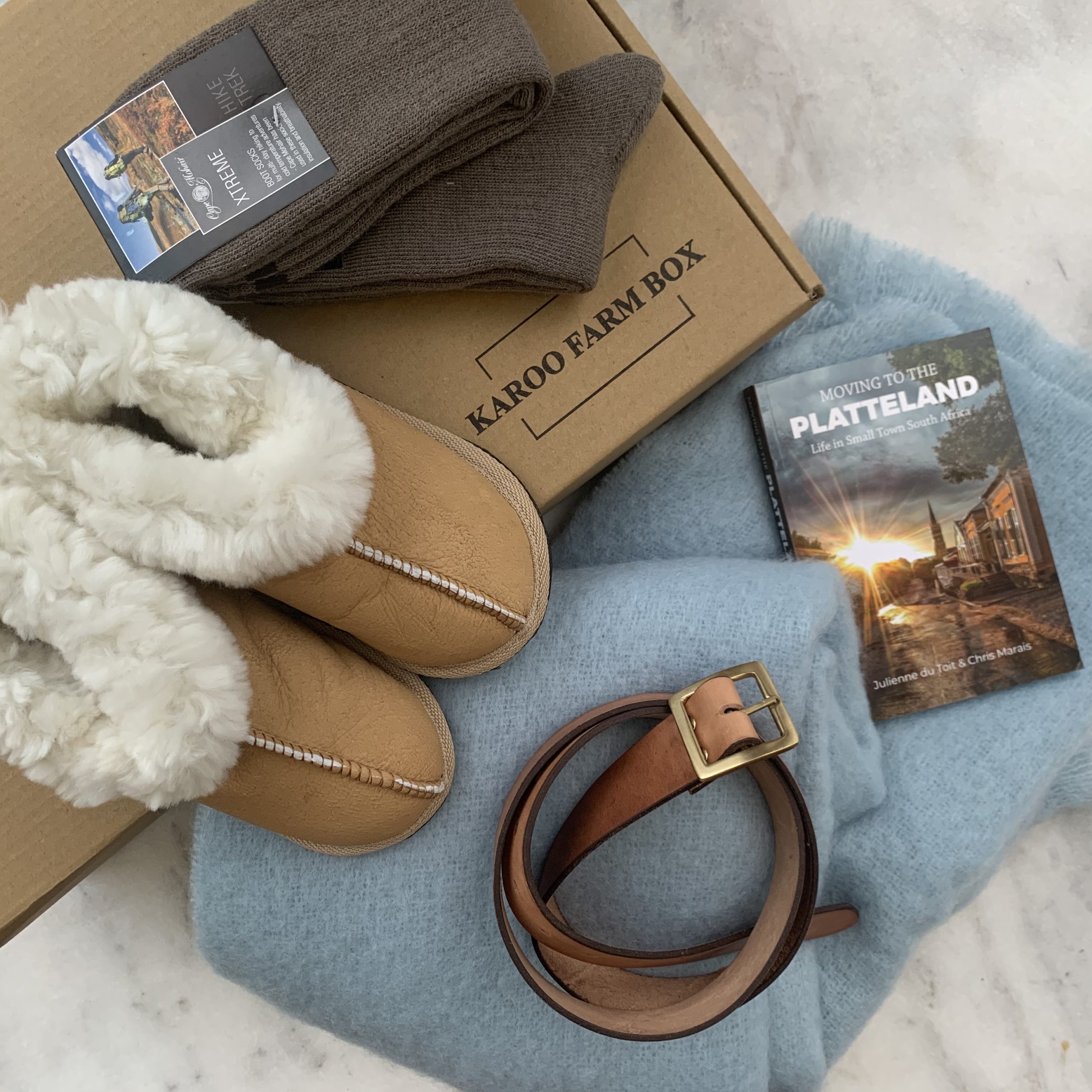
With love from the Karoo – sheepskin slippers, leatherware, warm socks, a mohair blanket and a book to curl up with. Photo by Louzel Lombard.
Rise of the padstal
Lombard also runs True Living, a comfortable cross between a restaurant and a farmstall (padstal), in one of Cradock’s main roads.
A country farmstall remains a gift to travellers, a place where you are treated to a local slice of life. The food on offer is a variety of preserves, dried meats, sit-down meals and homemade takeaway specials – mostly prepared by farmers’ wives living close by.
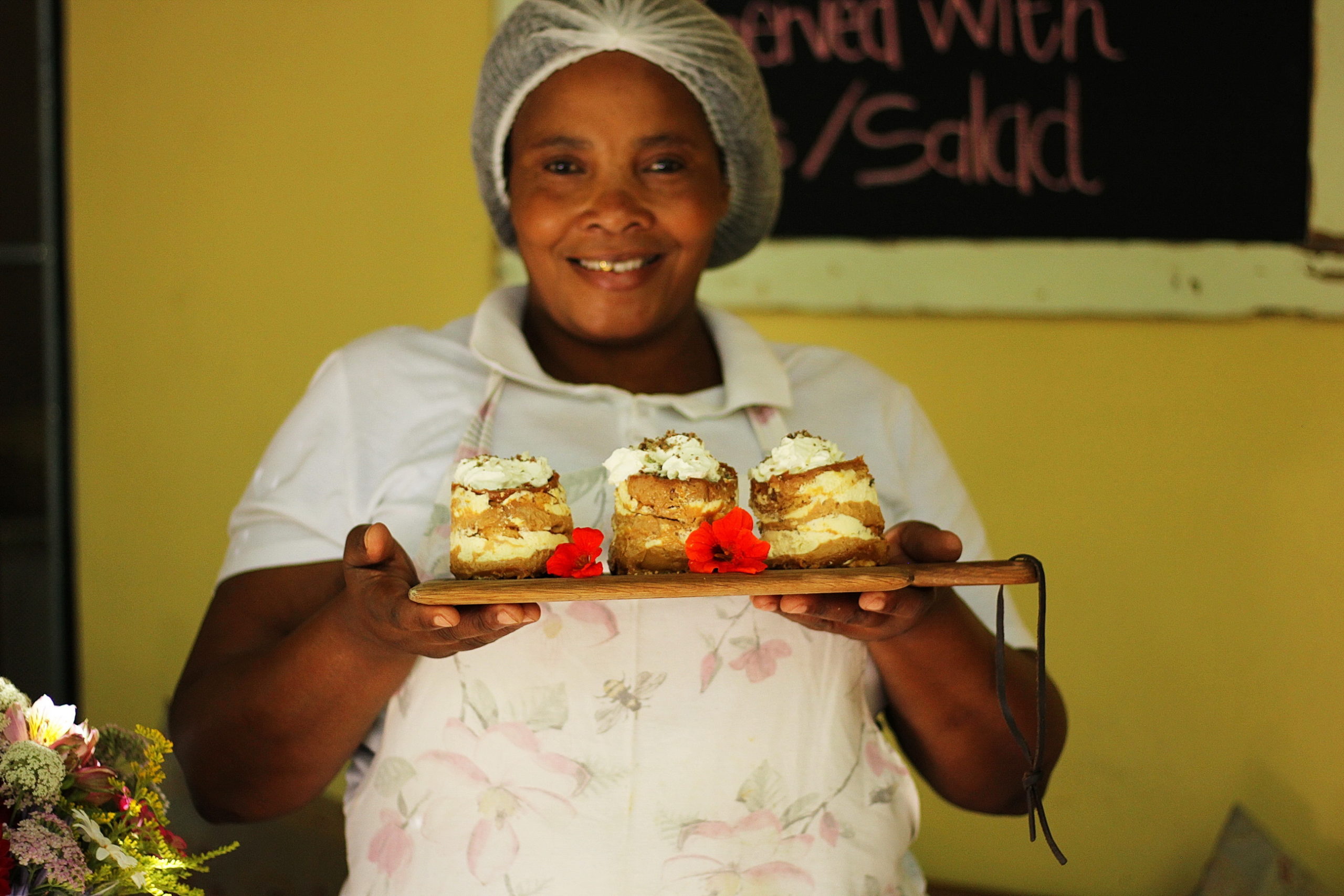
Lani’s True Living restaurant in Cradock serves traditional delights like peppermint crisp tart. Photo by Chris Marais.
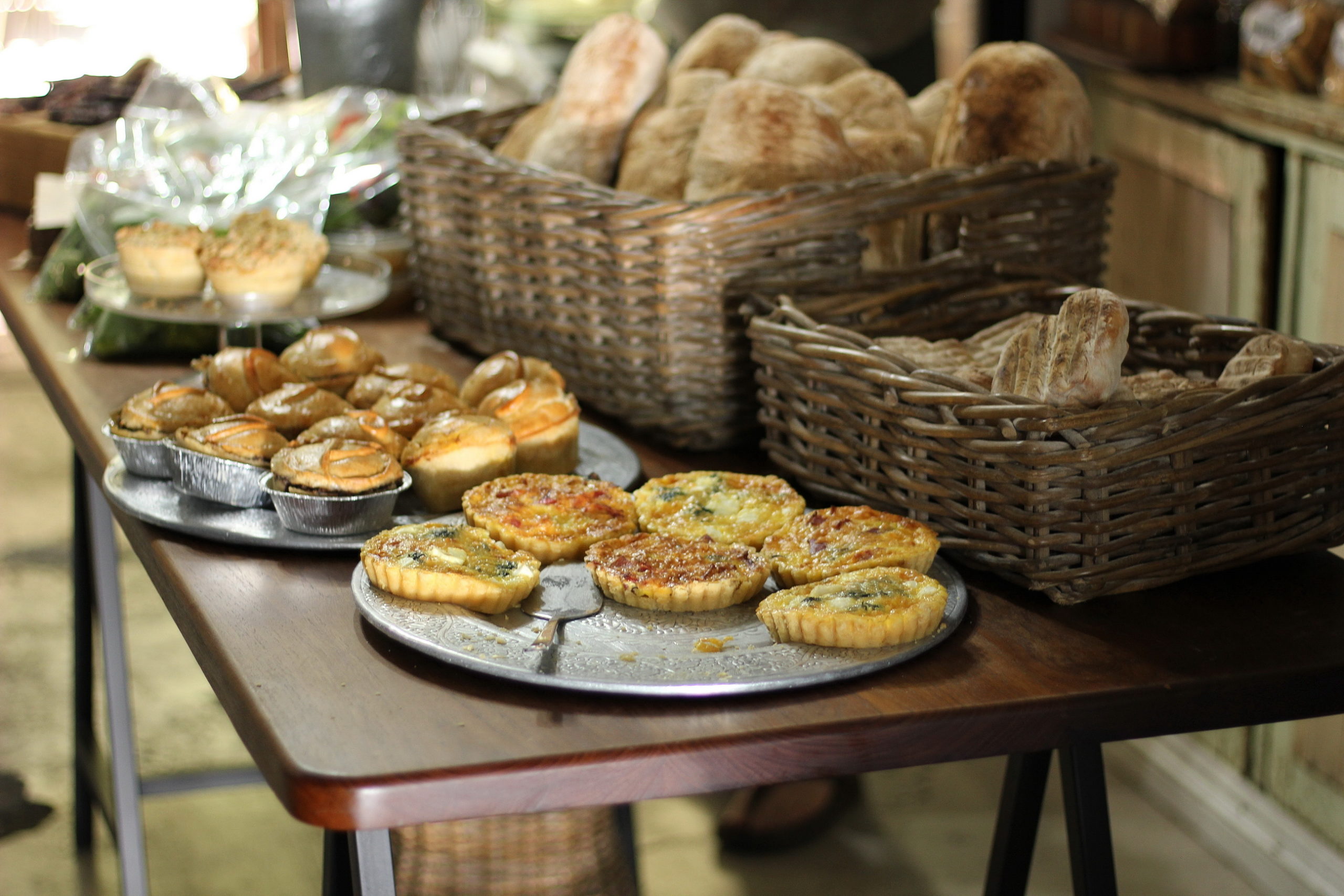
From Lani’s True Living kitchen comes a steady stream of pies, quiches, farm breads and roosterkoeks. Photo by Chris Marais.
Each padstal worthy of the name generally has its own speciality food item that comes with a secret recipe. This could be a bag of biltong, a delicious pie, a slab of nougat, bottles of jam or preserves. Look out for traditional offerings like slaphakskeentjies (onions pickled in a mild mustard sauce), koper pennies (carrot salad), turksvystroop (prickly pear syrup), boeremeisies (apricots in almond-infused witblits) and boerejongens (brandied grapes). These all began as a way of preserving the bounty of seasonal crops and fruits.
The farmstalls – or those in the Karoo, at least – are usually between towns, owned and run by enterprising farmers’ wives. They are a real haven for travellers, featuring regional products, crafts and all manner of books, designed as gifts and mementos of your journey through South Africa’s country roads.
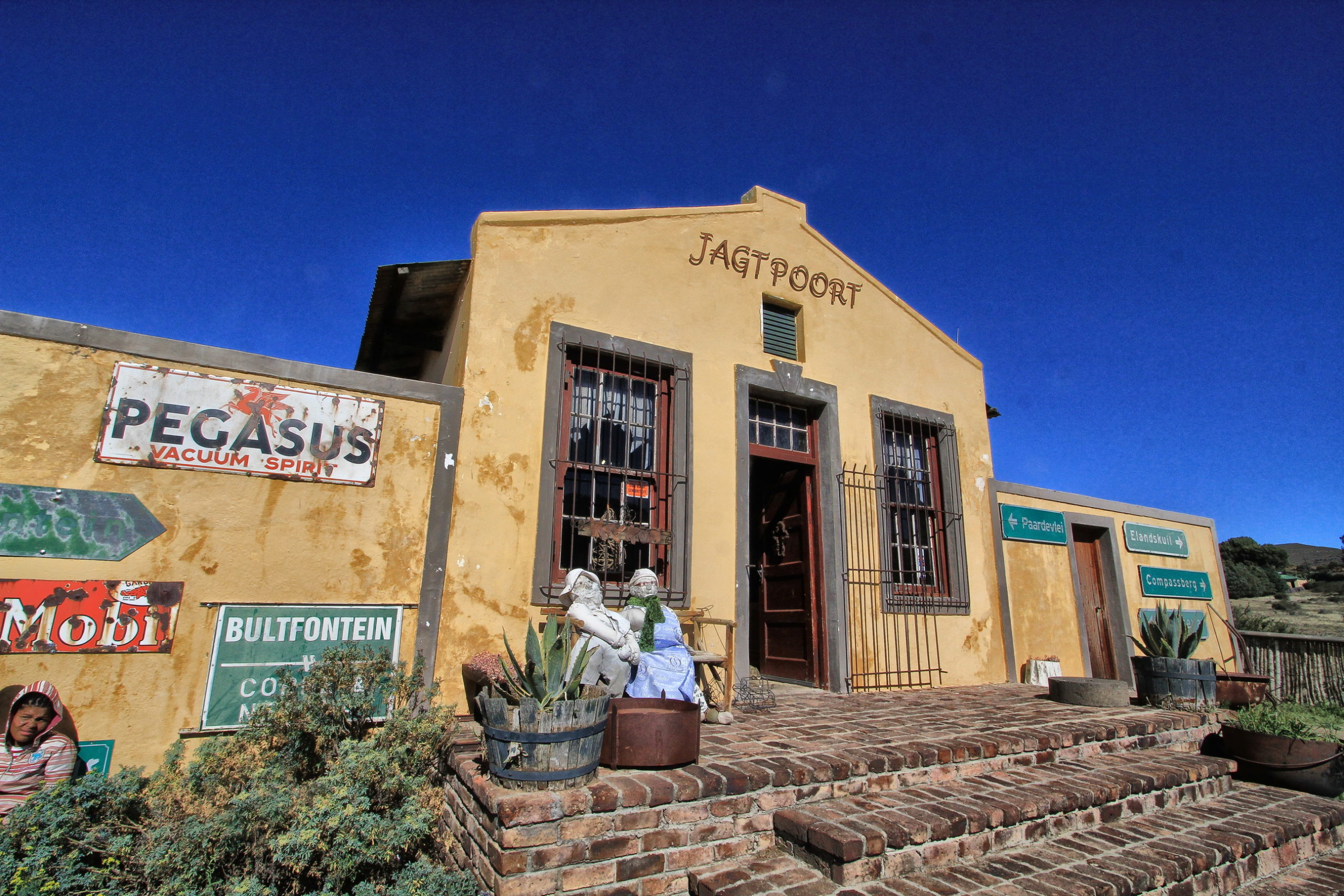
Jagtpoort Padstal, an institution at the top of Lootsberg Pass, north of Middelburg, Eastern Cape. Photo by Chris Marais.
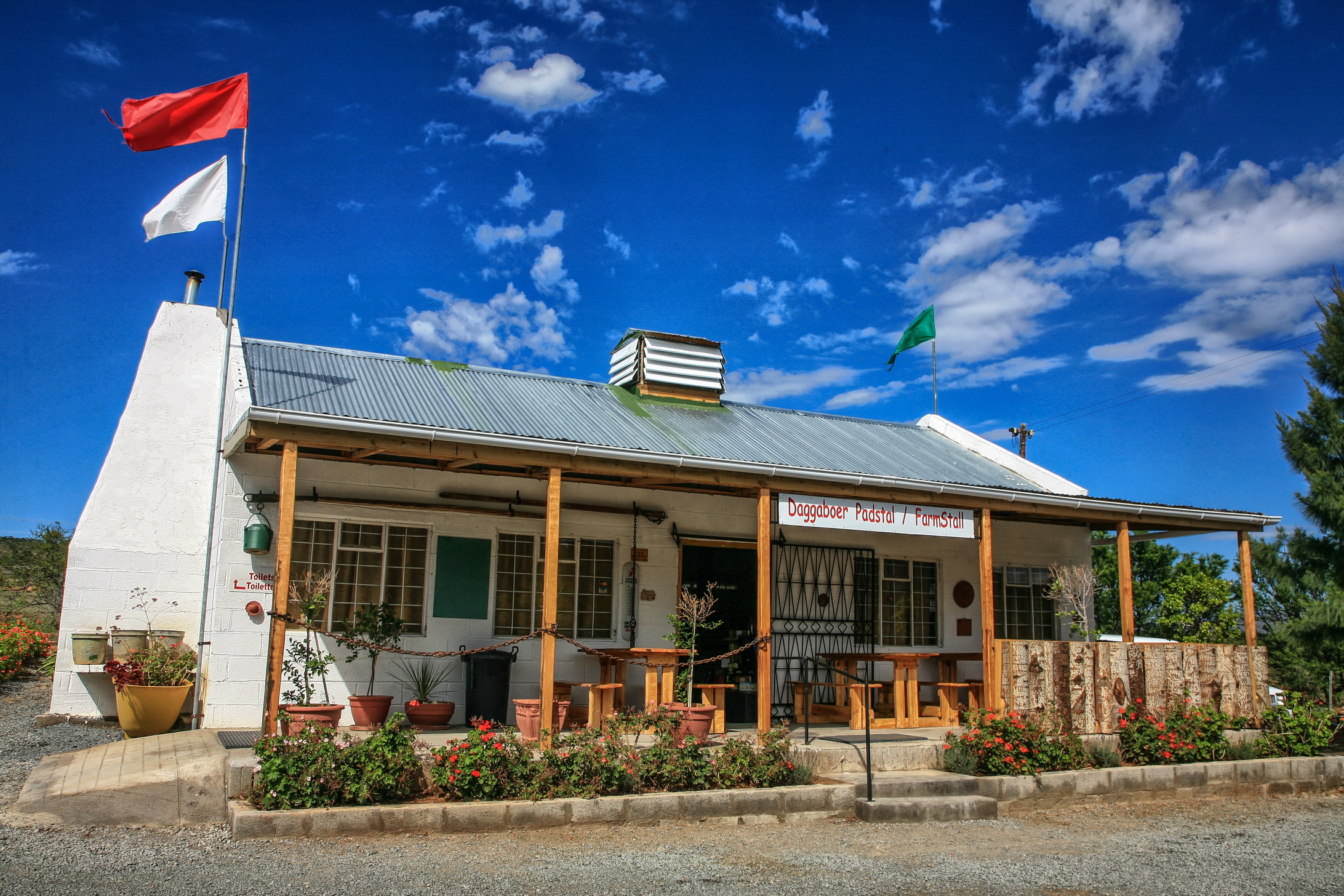
Daggaboer Padstal south of Cradock is famous for sheepskin slippers, a massive range of preserves and dagga that is always out of stock. Photo by Chris Marais.
Bit of everything
In the towns themselves, there are still those general trading stores that offer a fascinating snapshot of all the things locals prize and need.
For example, Zelda Ferreira of Iets van Alles in the tiny village of Vosburg in the Northern Cape does a reasonably brisk trade in Lister generator engine parts, knitting needles and wool, fanbelts, salad spoons, enamelware, toilet paper, hairspray, pliers, padded bras, diesel filters and rubber ducks.
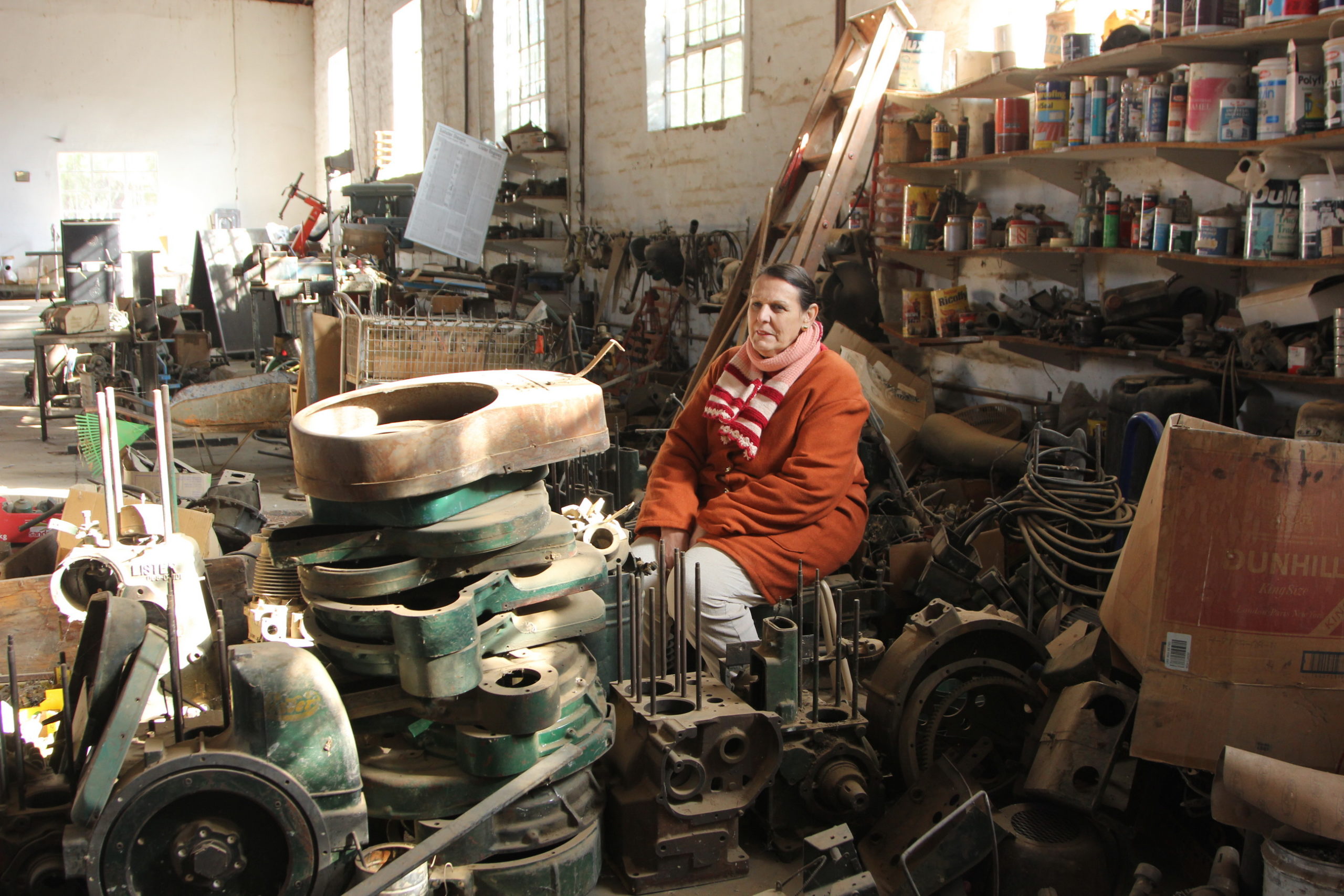
In the Karoo, there is still a reasonably brisk trade in Lister engine generators, and Zelda Ferreira of Vosburg keeps all the parts. Along with padded bras and other necessities. Photo by Chris Marais.
In Bedford, we encountered a more modern version of these catch-all shops, belonging to a well-loved Senegalese man. Thiam (the locals fondly mispronounce his name as “Chum”) Miadcke came to this small Eastern Cape Town in 1998 and started selling goods on the pavement of the main road.
It took four years before Miadcke actually moved into a building. He was so successful that his establishment expanded into one of the town’s biggest retail spaces, with six shop assistants.
The secret was that as a pavement hawker, Miadcke sussed out local shopping needs.
“Some of my best sellers have always been wigs, doorbells, cellphones and linoleum. But I could never sell clothing because of the dust.”
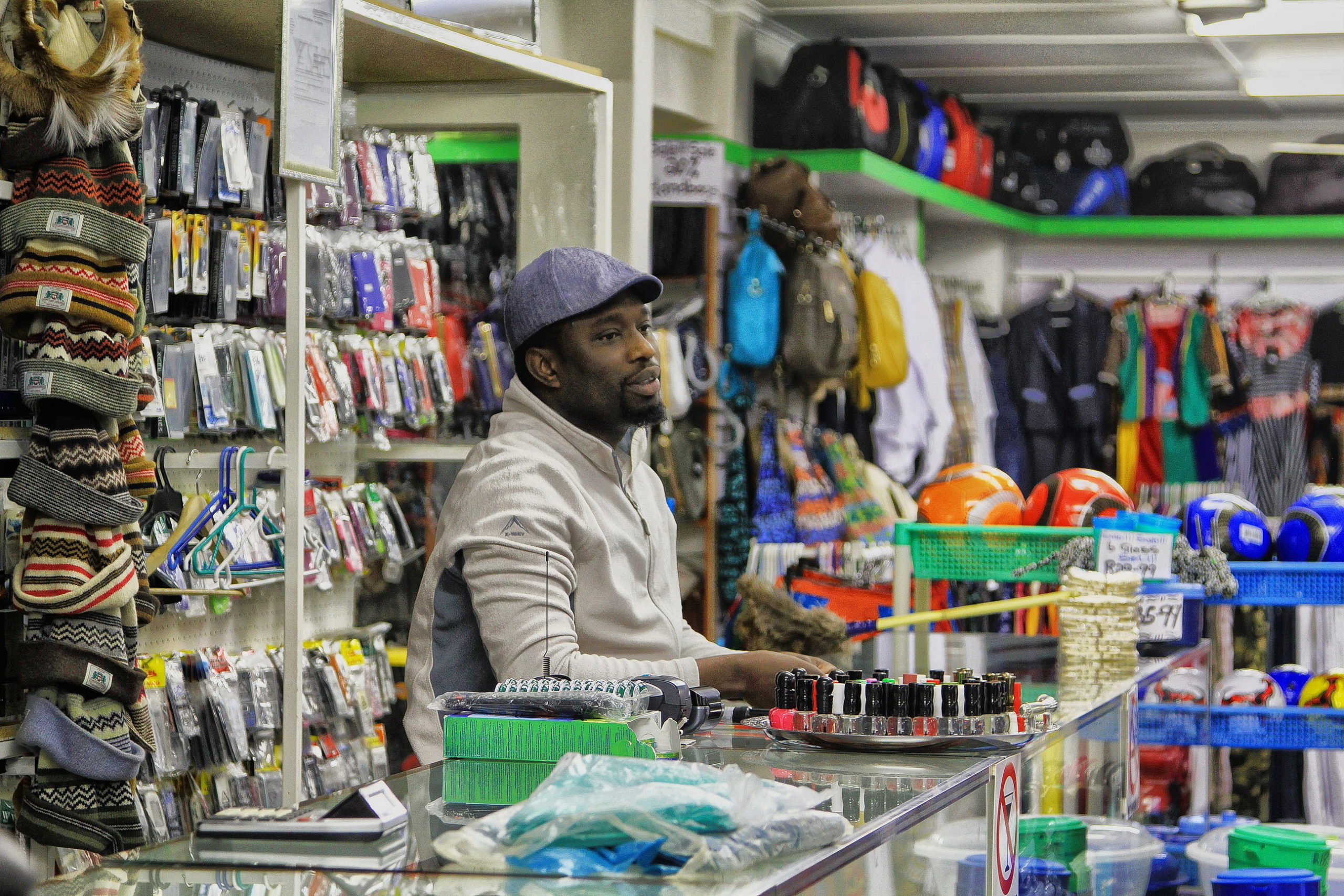
Thiam Miadcke, aka Chiam, learned exactly what Bedford residents want most while he was a pavement trader. Photo by Chris Marais.
Now that he had a store, Miadcke could indulge his sharp eye for fashion. His other retail asset was his kindness. Everyone in Bedford had something good to say about him, how he helped them find an evening dress, repair a cellphone or track an elusive part for an appliance.
In smaller towns like Nieu-Bethesda, most residents used to do their shopping in nearby Graaff-Reinet. Then Ali-Ahmed Saju arrived from Bangladesh, and took over Die Winkel, just across from the post office. He and his brother own it, live in the shop and retreat to pray in the back room several times a day.
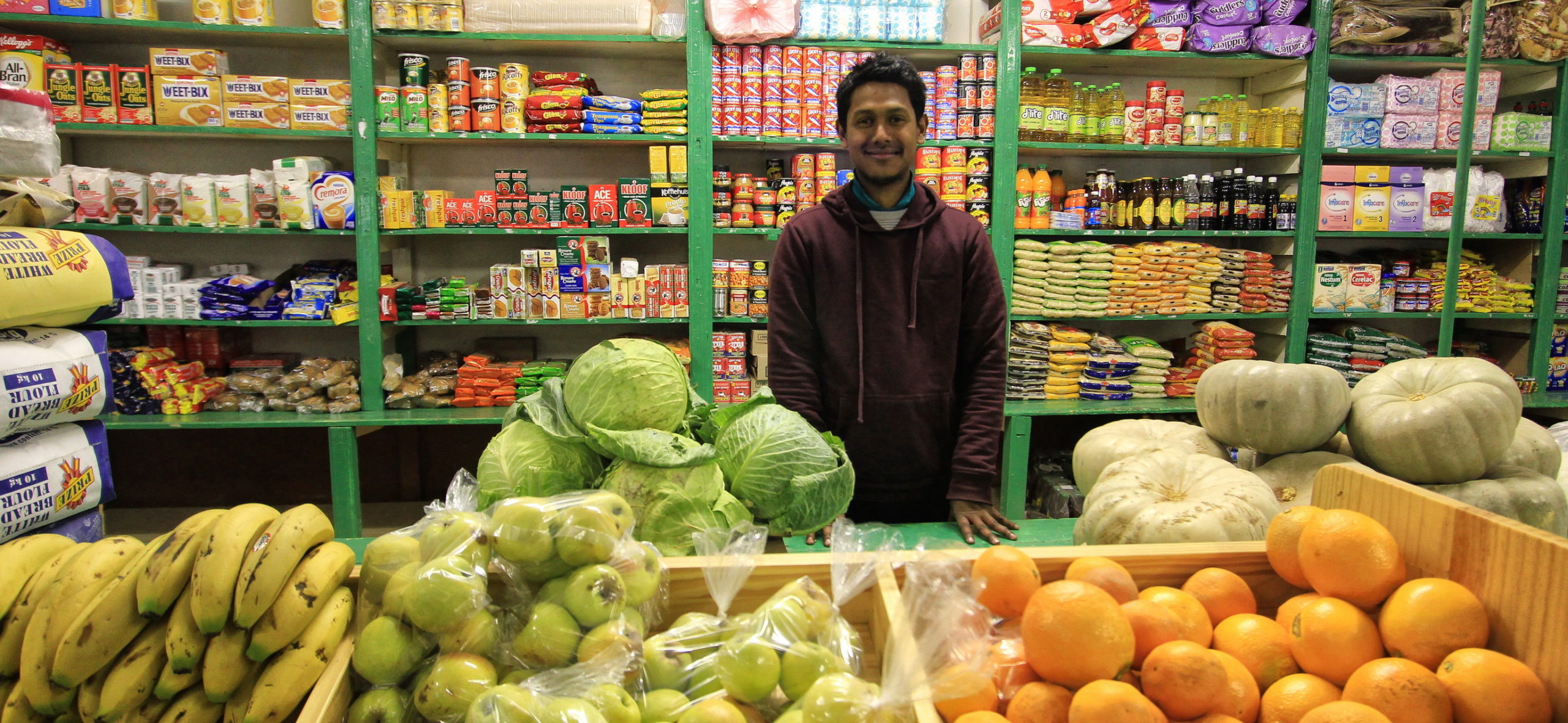
Ali-Ahmed Saju of Nieu-Bethesda’s general store, Die Winkel. He has found out what residents travelled to Graaff-Reinet to buy, and now stocks it for them at good prices. Photo by Chris Marais.
Saju, as everyone calls him, says the key to success is hard work (he is open from 8am to 8pm) and to supply the goods that locals used to travel to Graaff-Reinet for.
“I like it here. I like the people of Nieu-Bethesda. Everyone knows me. If people ask anything I see if I can get it for them, and don’t ask too much price.”
Book shops
Just down the road from Die Winkel is what Athol Fugard has called “the best bookshop in the Southern Hemisphere” – Dustcovers, owned by the only vegan in Nieu-Bethesda, Victoria Nance.
She’s an animal rights champion who walks the walk, living with a pack of rescue dogs, raising money for pet sterilisation, comfortable bits for horses and kennels for community canines.
Over the years her pack has changed, but the ritual of visiting Dustcovers remains the same: there are always dogs and cats that greet you at the door of the bookshop.
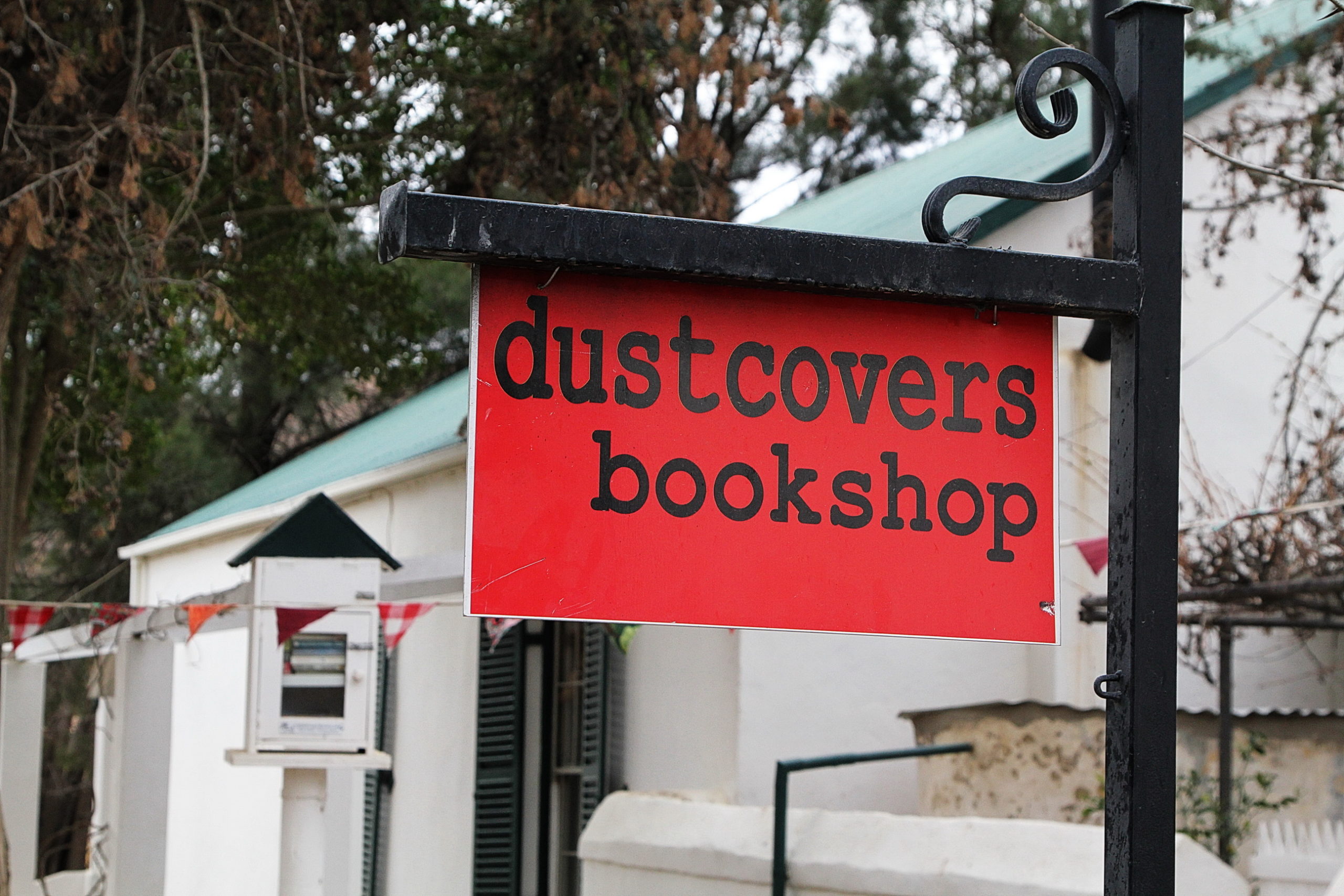
One of the best little bookshops in the Karoo (or the Southern Hemisphere, according to playwright Athol Fugard) is in tiny Nieu-Bethesda. Photo by Chris Marais.
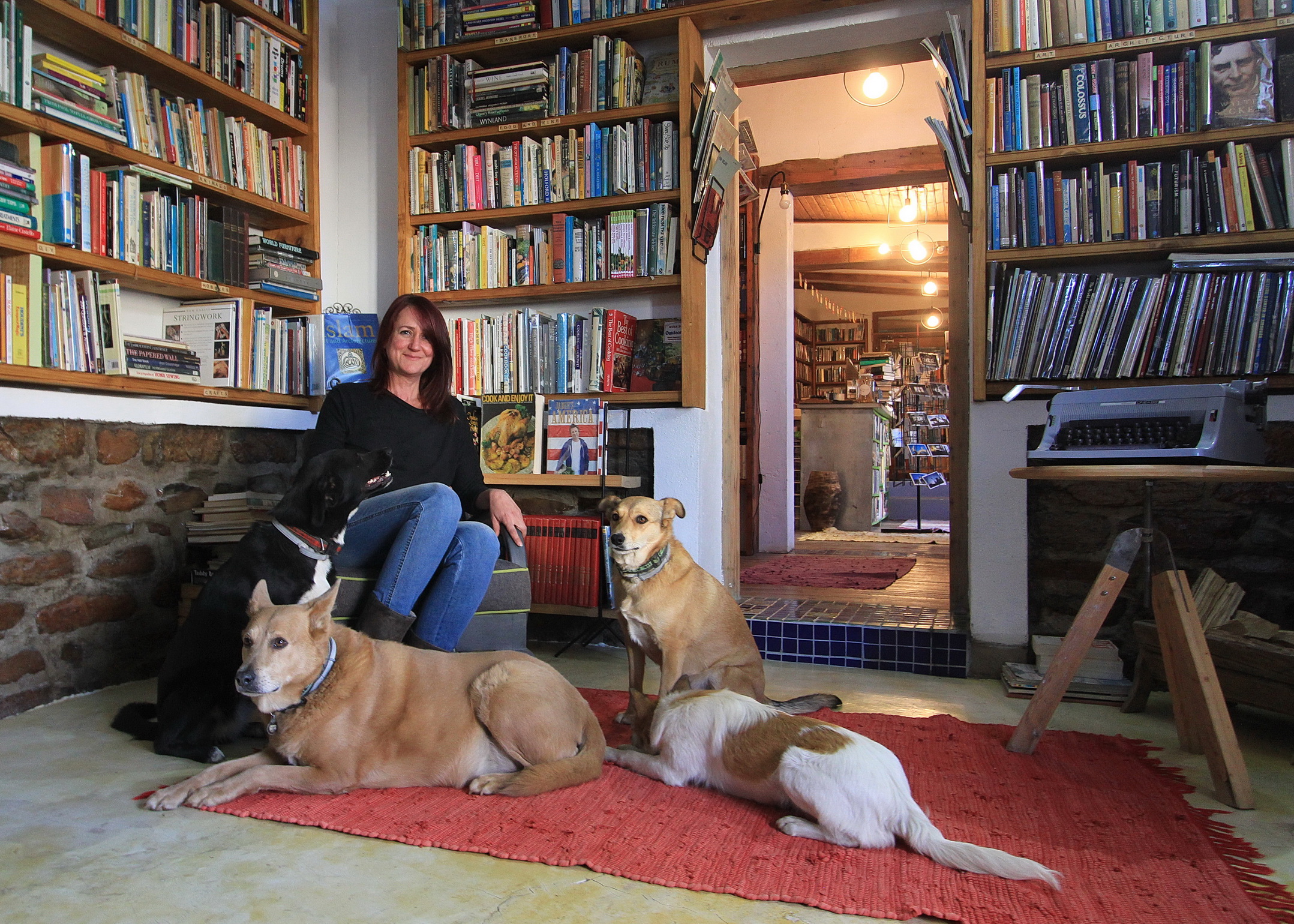
Animal and book lover, Victoria Nance, surrounded by some of her fans. Photo by Chris Marais.
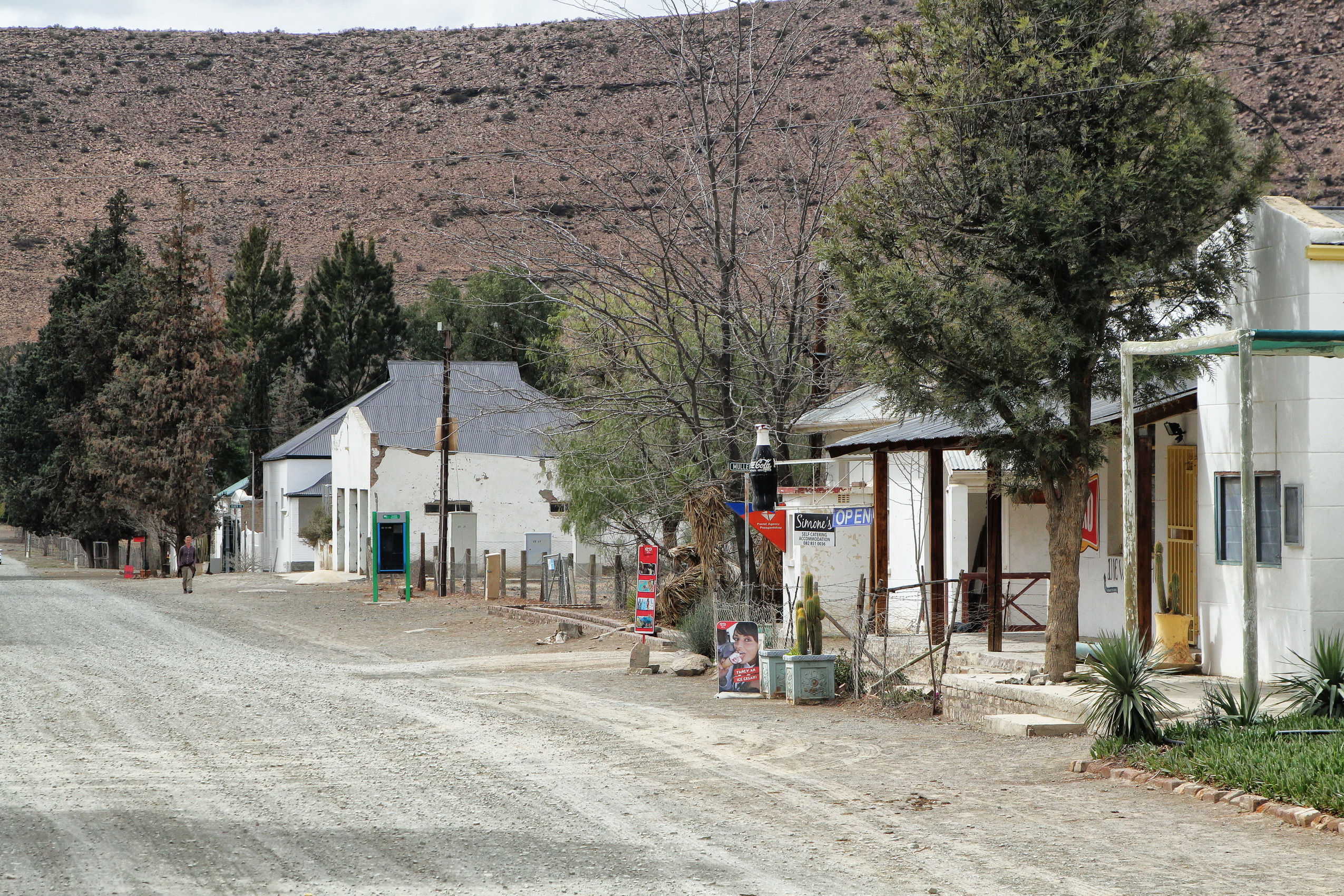
Hudson Street, Nieu-Bethesda, featuring Dustcovers and Die Winkel. Photo by Chris Marais.
The dry climate of the Karoo naturally lends itself to preserving books. Down the road in Graaff-Reinet is another famous bookshop, owned by the McNaughton family. Owner David McNaughton and his father are history buffs, and this is where you can find a good novel, a good guide to the region or a vintage treasure waiting for a new home.
One of a kind
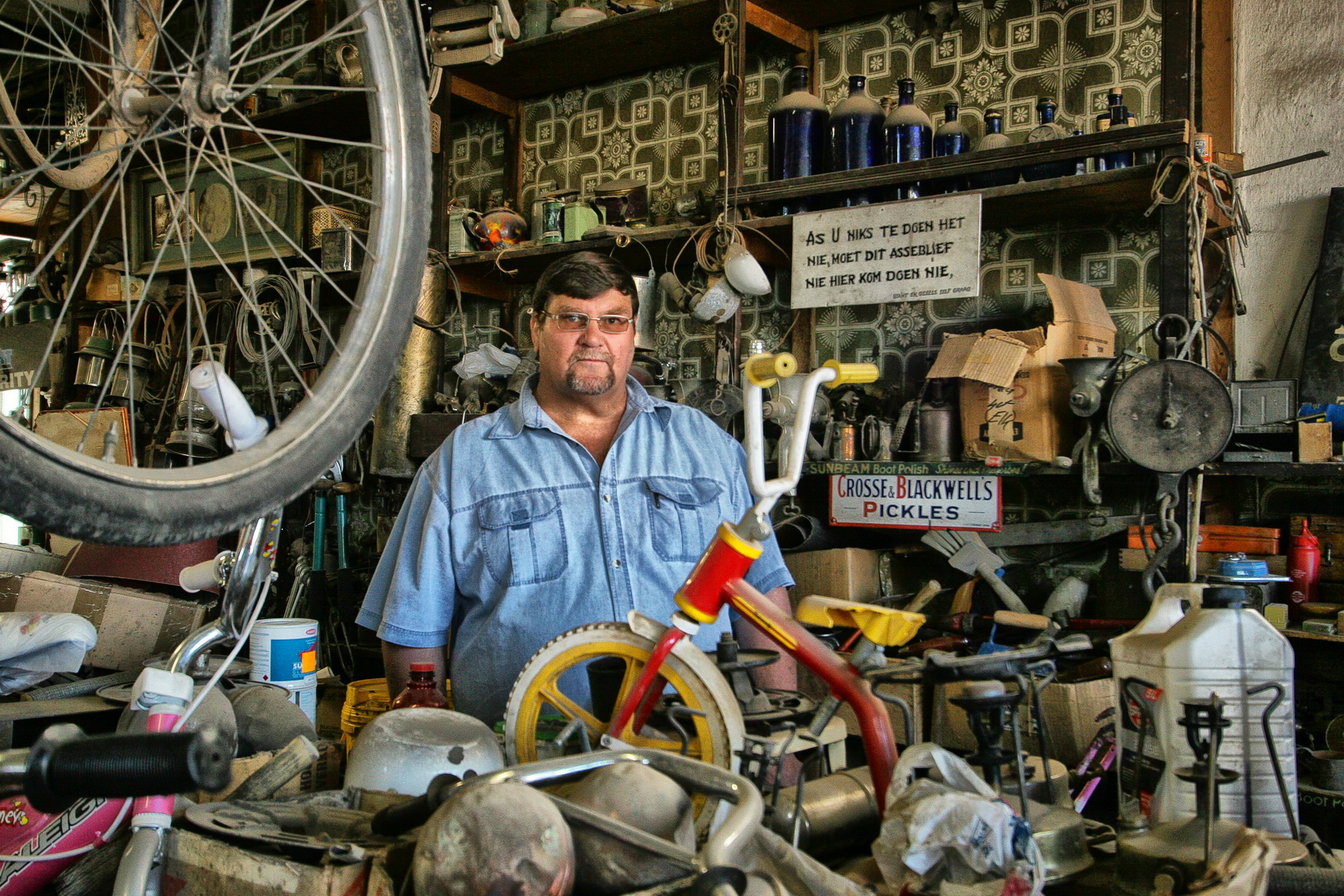
Martin Ellis’ bicycle shop in Beaufort West. Photo by Chris Marais.
The Karoo also seems to feature utterly unique specialty emporiums. One is a famous bicycle shop in Beaufort West, called MC Ellis. In reality, it is more of a completely spontaneous, unstructured museum-shop.
Owner Martin “Tim” Ellis’s grandfather bought the store in 1934 and for years it was a trading store, with a tailor upstairs.
Except for two years of Ellis’s life, when he was a teacher at Marlow Agricultural School in Cradock, this shop has been his life.
“I was raised here, surrounded by bikes.”
Apart from bicycles and parts, inner tubes, pumps and MTB accessories, you might encounter an ancient box camera he bought off someone, bottles of ginger beer, a guitar, old-time fire extinguishers, even Zimmer frames with wheels waiting to be repaired.
For a long time, there used to be an ancient exercise bike in the window. Ellis is convinced it might be the first stationary one ever made – at least in this country. His grandfather made it for a certain Oom Ackerman, who wanted to get some exercise but who felt he’d be embarrassed riding around in public.
And apparently it worked, Ellis recalls. Oom Ackerman lost quite a bit of weight.
The Ellis family coffin (never used, obviously) is now kept where the tailor used to work. Children are drawn to this shop, happily dropping in and out in this treasure trove, watching the endless repairs of punctures, and coveting their next bike.
Ellis, the only one who knows where everything is, says Professor Chris Barnard (who was born in Beaufort West) popped in just before he died “to see if the shop was still such a mess”. DM/ML
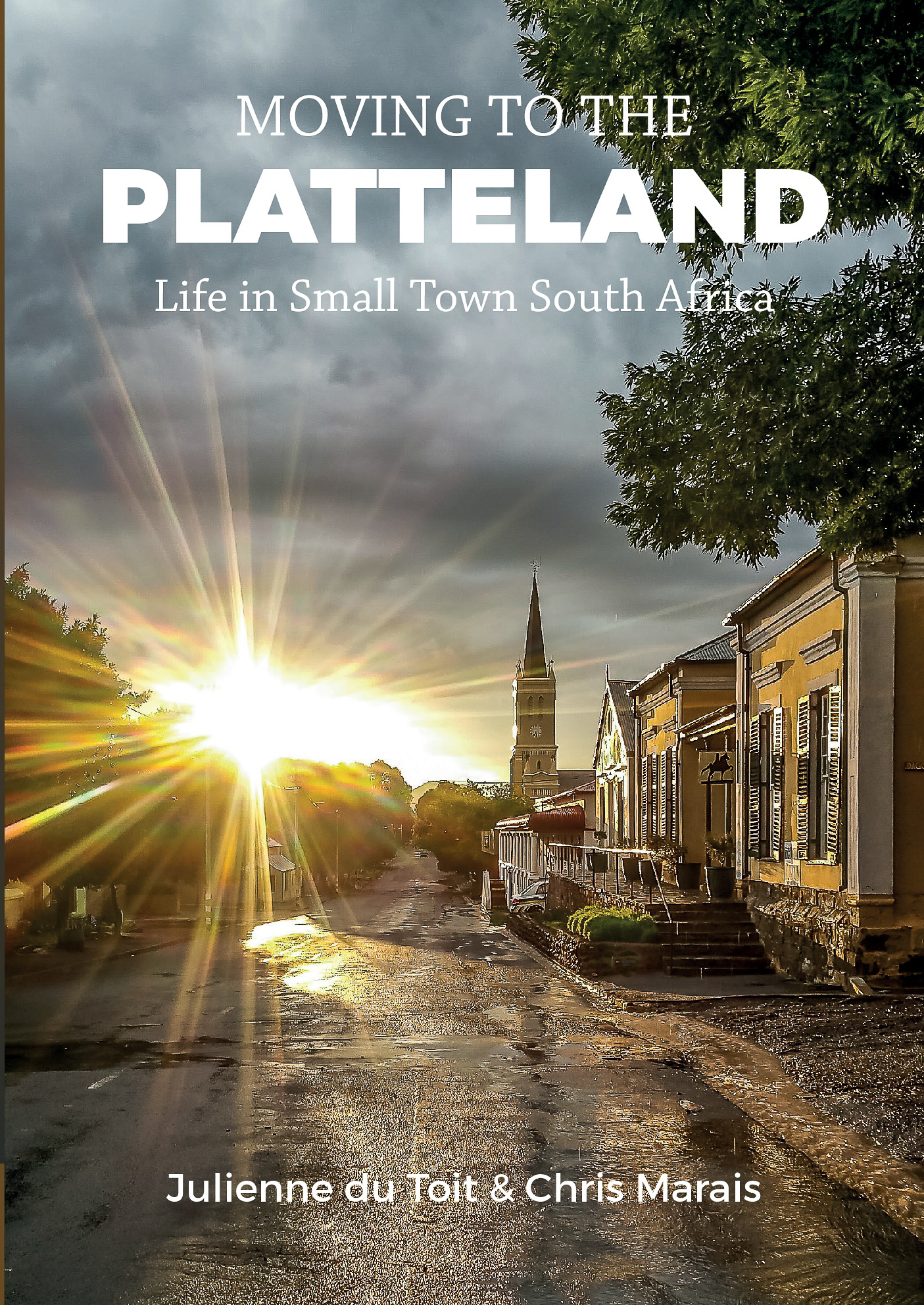
For more stories of all things rural by Julienne du Toit and Chris Marais, read Moving to the Platteland – Life in Small Town South Africa (MLM Publishers, 300 pages, 135 black and white images). To purchase, either order from www.karoospace.co.za or email [email protected] for details.















 Become an Insider
Become an Insider
Ahhhh Julienne, what a fabulous feature, with delicious pictures by Chris Marais. Makes me want to leap into a car and drive till I can taste those peppermint tarts, walk those quaint streets and….relax! Please keep your features coming in DM!